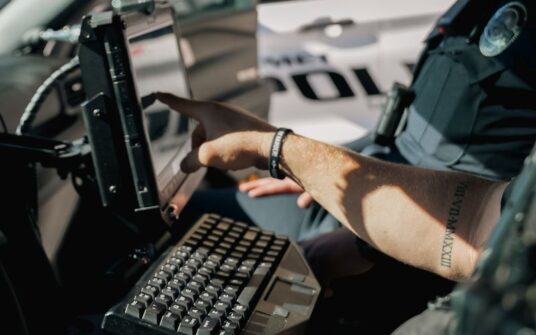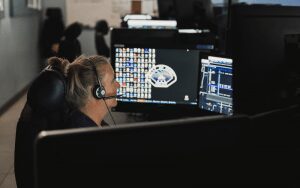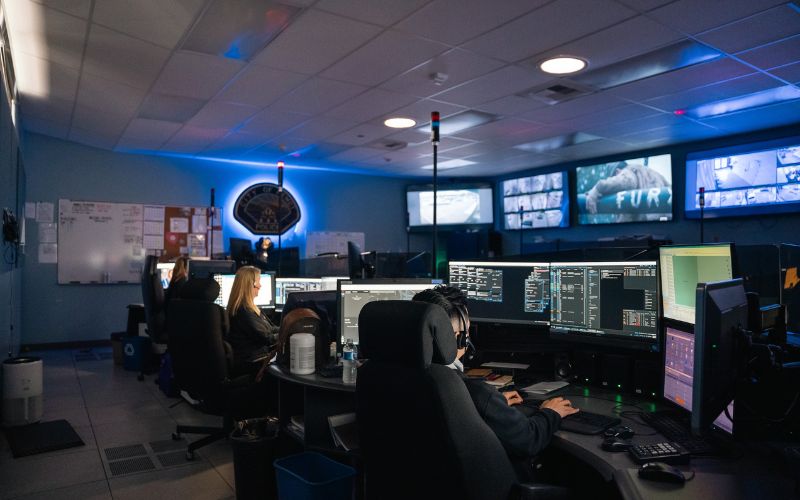YOUR HONESTY IS PARAMOUNT
Honesty is the most valued trait of a law enforcement officer. It is valued by not only the law enforcement profession, but the community as well. Victims, suspects, judges, attorneys, and anyone else involved in the criminal justice system, rely on the fact that an officer’s written report, actions, and testimony are the truth.
Unfortunately, too many good people make bad decisions when they take a lie detector test, or polygraph examination. Law enforcement candidates will lie to cover up something they did or had knowledge of, when the issue at hand may not be a disqualifying one.
A law enforcement agency would rather have confidence knowing that a candidate was 100% honest in their polygraph exam, than trying to hide something.
PREPARATION
California P.O.S.T. (Commission on Peace Officer Standards and Training) has mandates regarding the due diligence a law enforcement agency must complete to thoroughly investigate a peace officer’s background prior to an offer of employment. In an era of heightened concerns about the profession, the department cannot bear the risk of liability in leaving any stone unturned.
To start, you will be asked to complete a document called the Personal History Statement (PHS.) It can be a bit intimidating on the surface, as it’s a 25-page detailed list of requests of your in-depth information. Besides basic details, you will be asked to provide information about immediate relatives, 7-10 character references, residential history including names of roommates and landlords, and specific details as they relate to your education, employment, military experience, financial background, criminal history and illegal drug use.
Taking the time to do an online search and familiarize yourself with this document is helpful, so you may begin to corral the requested details and have them readily available should you be asked to move forward in the process. It can be overwhelming when first viewed, and it’s natural to feel a slight sense of dread or fear, but it’s extremely important to note that your admission of certain aspects of your prior history are not automatically considered disqualifiers.
It is far more damaging to engage in any willful omission of prior details, as the potential for your investigator to later discover information you have withheld is great, and the punishment for your dishonesty will be rendering you ineligible for the position.
POLYGRAPH THEORY
Lie detection assumes that when an individual experiences apprehension, fear, or emotional excitement, his or her respiration rate, heart rate, and galvanic skin resistance sharply increase. A polygraph instrument records the changes as the individual is questioned by a trained examiner. The examiner interprets the recordings and renders an opinion as to the truthfulness of the person examined.
The theory behind the polygraph technique holds that a conscious mental effort to deceive made by a normal, healthy person will cause certain physiological changes detectable by the polygraph instrument. These changes are driven by the autonomic nervous system, which regulates the body’s internal environment and is generally involuntary.
The parasympathetic nervous system, a division of the autonomic nervous system, dominates in relaxed situations. It performs routine “housekeeping” functions such as digestion and maintenance of body temperature. No matter how hard an examinee might try, he or she will not be able to prevent physiological changes in respiration rate, heart rate, and galvanic skin resistance.
INTEGRITY IN THE POLYGRAPH PROFESSION
Honesty within the polygraph community is a vital component among this unique profession. Polygraphs are used in a variety of ways:
- Screen candidates applying for law enforcement jobs at the municipal, state, and federal levels.
- Monitor Post Convicted Sex Offenders (PCSOT)
- Assist law enforcement in criminal investigations
- Assist attorneys in determining the veracity of their clients.
If polygraph examiners were dishonest in rendering their professional opinions, it would potentially have an adverse effect on public safety and the criminal justice system.
POLYGRAPH QUESTIONS
There six different types of polygraph questions:
- Neutral (Irrelevant) Questions
- Relevant Questions (These questions pertain to the target issue / The reason why the polygraph examination is being conducted)
- Probable Lie Comparison Questions
- Directed Lie Comparison Questions
- Sacrifice Relevant Questions
- Symptomatic Questions
Each of the above questions serve a specific purpose and are strategically placed in a specified order depending upon the polygraph technique being used by the examiner.
The polygraph examiner will evaluate the examinee’s level of physiological reactions to each of the questions being asked of the examinee; the examiner will then analyze the data collected and render a professional opinion to determine if the examinee was being truthful or deceptive in his/her response to the relevant questions.
COUNTERMEASURES
Countermeasures are deliberate acts that an examinee will participate in during a polygraph examination to appear non-deceptive; these acts include, but are not limited to the following:
- Controlled breathing
- Muscle flexing
- Excessive movement
- Distracting thoughts (Mental Countermeasures)
- Self-inflicted pain
- Medications or substances that can alter normal physiological functions
Countermeasure techniques are readily available on websites and published literature. Polygraph examiners are trained to identify when examinees are participating in countermeasure activity and will in most cases discontinue the polygraph examination.
When the polygraph examiner has determined that countermeasures were used by the examinee, the polygraph examiner cannot render their professional opinion as to the examinee’s truthfulness or deceptiveness; essentially, the examinee does not pass their polygraph examination because the data collected is of non-comparable value and the polygraph charts cannot be interpreted accurately.
YOUR SUCCESS
Please visit the following pages to learn more about each phase of the hiring process, as well as the training you’ll receive if hired.
QUESTIONS?
READY TO APPLY?
If you are up to the challenge and want to join the Hemet Police Department, then complete an application today.













